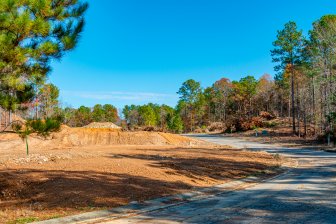How a psychological well being mission from the Newfoundland period moratorium can inform senior care
With regards to caring for seniors in Newfoundland’s outport communities, there could also be a homegrown mannequin the province can use — and it sprang from the cod moratorium imposed 30 years in the past.
A program by the Canadian Psychological Well being Affiliation educated neighborhood members — irrespective of their experience — to assist their neighbors address the despair, listlessness and anxiousness that adopted the moratorium, which worn out jobs for greater than 30,000 folks.
That mannequin of enabling folks locally to take care of each other may very well be harnessed to assist the province take care of its quickly growing older rural inhabitants, says Dr. Samir Sinha, director of geriatrics at Toronto’s Mount Sinai Hospital.
Learn extra:
A ‘twin pandemic’ – NS seniors, COVID-19 and the loneliness that will not go away
“I believe related fashions could be leveraged to essentially assist fight social isolation and loneliness,” Sinha mentioned in a latest interview.
“In the event you have a look at international locations world wide — even america, or in Japan, or Australia, New Zealand, in the UK — you’ll be able to see quite a lot of initiatives that appear to be this type of method.”
On July 2, 1992, as fish shares collapsed, the federal authorities suspended all business cod fishing within the province, ending a serious supply of earnings in rural Newfoundland. Fish vegetation closed, small companies shuttered and fishers laid off their crews and misplaced their livelihoods. Younger folks started transferring away for jobs in different provinces, forsaking devastated mother and father and grandparents.
After three a long time of out-migration, Newfoundland and Labrador is residence to Canada’s oldest and most quickly growing older inhabitants: almost one in 4 residents is 65 or older, based on the newest census information. Exterior of the capital metropolis of St. Johns, lots of them nonetheless reside in tiny former fishing cities scattered alongside distant coastlines — and an extended drive away from the closest physician.
Learn extra:
One 12 months closure of business cod fishery in northern Gulf of St. Lawrence
Sinha, who has suggested a number of Atlantic Canadian provinces on senior care, says that fairly than forcing seniors to maneuver into long-term care services in bigger cities, Newfoundland and Labrador ought to have a look at packages that empower communities to permit folks to age safely and fortunately at residence.
That was precisely the concept behind a mission Susan McConnell helped launch after the moratorium, by means of the native Canadian Psychological Well being Affiliation chapter and with its then-director, Moyra Buchan.
“Individuals within the communities had been struggling, and companies to communities had been sparse, if existent in any respect,” McConnell mentioned in a latest interview. “And I believe we each had a perception that we might educate folks methods to be extra useful to one another.”
The concept was to coach folks in rural communities — church group leaders, Rotary Membership members — in fundamental therapeutic practices. They had been taught to pay attention, to ask everlasting questions and methods to interpret difficult feelings. McConnell calls it “constructing serving to expertise,” and he or she mentioned she educated folks from about 10 totally different rural Newfoundland communities.
These folks had been then given the instruments they wanted to steer their very own serving to expertise workshops, so they may prepare much more folks.
“For years, I might run into individuals who advised me that they had taken the course in some neighborhood,” McConnell mentioned. “And so they advised me the way it modified the way in which they had been making an attempt to be useful.”
Packages like McConnell’s are cropping up internationally to assist seniors age at residence, Sinha mentioned.

The initiatives he factors to contain coaching neighborhood members — the postmaster or a trusted municipal official, for instance — to verify in on native seniors and make significant connections with them.
They’re additionally taught to search for dangers of falls and to make sure seniors are conscious of occasions taking place within the city and what companies can be found to them.
Most of all, they could be a level of significant contact to assist stave off loneliness, he mentioned.
Loneliness, Sinha mentioned, can have the identical well being impression as smoking 15 cigarettes a day. Lonely seniors usually tend to name 911 and to have longer hospital stays, he mentioned.
The potential to take a load off the health-care system with preventive, community-based methods concentrating on loneliness is “fairly vital,” Sinha mentioned. “It is truly a cost-saving measure.”
Learn extra:
Many seniors battle with loneliness. The pandemic has solely made it worse
Each Sinha and McConnell mentioned that involving neighborhood members within the packages has one other main benefit: “They’re extra more likely to be trusted in that neighborhood than somebody like myself, who’s not from there,” Sinha mentioned.
And within the case of this system McConnell led, the individuals who gave the coaching could not have had skilled credentials however they had been acquainted faces who folks had been used to speak with.
“There have been lots of people that had quite a lot of issues about anyone who did not have their masters levels or their doctorate levels truly making an attempt to be useful,” she mentioned. “And I am considering, ‘Properly, they already are.’
This report by The Canadian Press was first printed July 31, 2022.
© 2022 The Canadian Press



